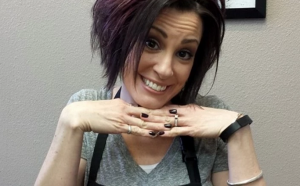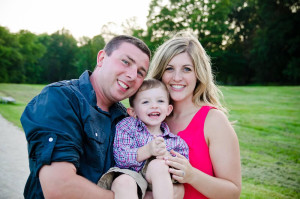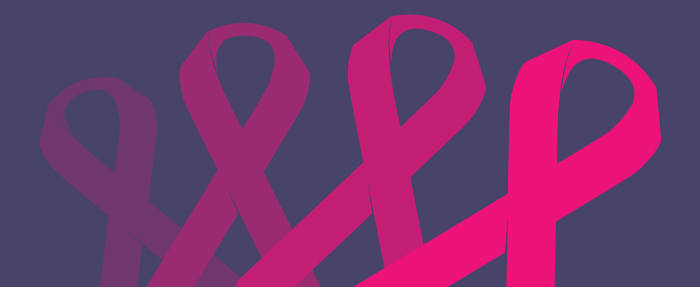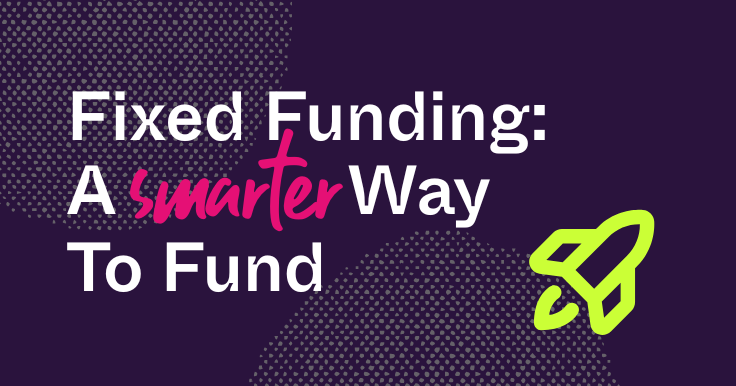Since Indiegogo first launched, we’ve seen a growing trend of people everywhere raising money for medical needs—many of which have came from a diagnosis of cancer within one’s family or group of friends. In fact, this clear increase influenced Indiegogo’s launch of Indiegogo Life in December 2014—our free platform for personal fundraising.
It’s estimated that about one in eight women (12%) will develop breast cancer over her lifetime (www.cancer.gov) and in addition to the more than a million newly diagnosed patients every year, millions more are directly connected to those facing it. These are the mothers, fathers, brothers, sisters, caregivers and friends who want to do what they can.
Some have known people who have survived breast cancer in the past, some may have been less fortunate, and some may not been touched by it at all. No matter what the situation, every diagnosis presents new questions about the best way to help.
Alongside those helping to cover the expenses of cancer for a loved one, we know that there are several other ways to help out in this time of need, so we’ve interviewed a few people about how to be there, including two survivors, a close friend, and a Development Director at Susan G. Komen Massachusetts. Here are the top five pieces of advice they had to share.
1) Be patient
 “There are many emotions, thoughts, and physical things that go on with people who have cancer. Sometimes we just need our space and time to process things alone.” -Sara, a 38-year-old hairdresser from Cedar Rapids, Iowa
“There are many emotions, thoughts, and physical things that go on with people who have cancer. Sometimes we just need our space and time to process things alone.” -Sara, a 38-year-old hairdresser from Cedar Rapids, Iowa
While we live in a society that values quick fixes and easy answers, there won’t be any found here. For a friend or family member, it’s best to take everything day to day, making sure not to rush the patient’s healing process. Do reach out, but don’t be offended if they wouldn’t like to chat on the phone or accept your invitation to come over to say hello. Chances are it’s not personal and they’ll reach out when they’re ready. Listening is key to determining whether to lean in or lean away a bit on any particular day or given week.
2) Remember the small things
“My advice to anyone who is helping someone through cancer is to stay positive and find some way to help them that will ease their worries. Even if it’s mowing the yard, or running errands.” –Sue, a friend of a breast cancer survivor and Indiegogo Life organizer
The idea of helping someone who is facing such a significant life event can feel overwhelming, daunting and even paralyzing. Instead of becoming afraid to step up, think about little things you might be able to provide. Maybe this is a dinner dropped off on the porch once a week, maybe it’s driving to and from an appointment once a month and perhaps it’s offering to mow the lawn. Start by thinking small and offering your assistance. If your friend or family member isn’t interested, they might say no. However, the sincere effort will not go unappreciated.
3) Offer to do the asking
 “I didn’t want to ask for help and it can be awkward to be the person receiving, but people really do want to help… People have this desire to give, but don’t always know how.” – Lindsay, a mother diagnosed at age 28
“I didn’t want to ask for help and it can be awkward to be the person receiving, but people really do want to help… People have this desire to give, but don’t always know how.” – Lindsay, a mother diagnosed at age 28
Most people have trouble asking for help—even when they really need it. While you should always determine what’s appropriate on a case-by-case basis, it’s worthwhile to look into how you can do some of the asking on a patient’s behalf. Maybe this is gathering a group of your friends to start a carpool for driving their kids to school, starting a fundraiser for their medical expenses, sponsoring your friend in the Race for the Cure or Relay for Life, or organizing food deliveries through an organization like Mealtrain, it can be a powerful way to take the burden off of someone going through treatment.
4) Keep life normal
“Life continues and this isn’t the only thing. It’s huge and it’s in the moment, but we can talk about a movie that might be coming it soon too. You don’t have to only talk about treatment. Be there whether they need a distraction or just to listen too.” – Lindsay
Every person’s experience is different from the next. Whether the patient needs a friend to talk to about treatment or they want to discuss a television show, be there for them. While dealing with breast cancer is a hugely impactful and emotional event, it can be meaningful to be able to live as normally as might be possible. Invite them to dinner with friends, to go shopping or head to their house to watch a movie on the couch. It might be a pleasant way to take a short break.
5) Don’t forget to take care of yourself
“When you are emotionally or educationally supporting someone with breast cancer, you may put your needs aside, but it’s still very much a struggle. If you are taking care of someone with breast cancer or supporting them, it’s crucial to have your own support system too.” –Catie, Development Director at Susan G. Komen Massachusetts
It can be physically and emotionally draining for a friend or family member helping a loved one with breast cancer. When you’re spending much of your time thinking about someone else’s needs, it can be easy to neglect your own. Make sure to make time to relax and step away—even if just for a little bit. Also, remember that people want to help you through this time as well. Talk to a friend about what you’re going through, locate a nearby support group or join an online discussion. It’s more than likely you’ll find someone else in your shoes and you’ll be a better caregiver for it.
Do you have a friend or family member who could use financial assistance in battling cancer? Learn more about starting a free Indiegogo Life fundraiser here or browse medical fundraisers here for inspiration.
Indiegogo Life is the free and easy way to fundraise for yourself or a loved one, powered by Indiegogo, the world’s largest crowdfunding platform. Follow Indiegogo Life on Facebook and Twitter for more stories and fundraising tips.
Photo by Jaimee K Photography www.jaimeek.com
Indiegogo Life is now Generosity by Indiegogo: the only socially conscious fundraising platform that’s free, fast, and open, giving individuals and organizations the power to improve lives everywhere. Find out more about Generosity at www.generosity.com.




The most important…Stay away from Oncologist
To support a good friend that just came down with this awful desease